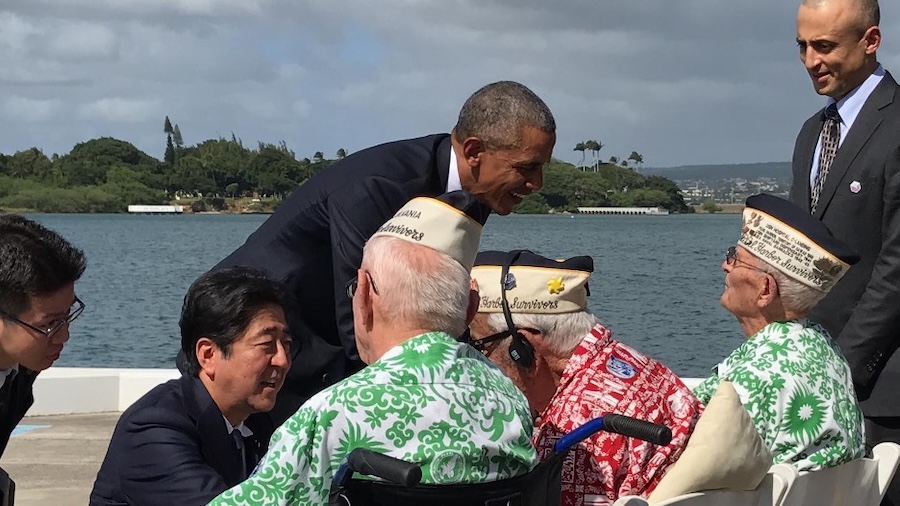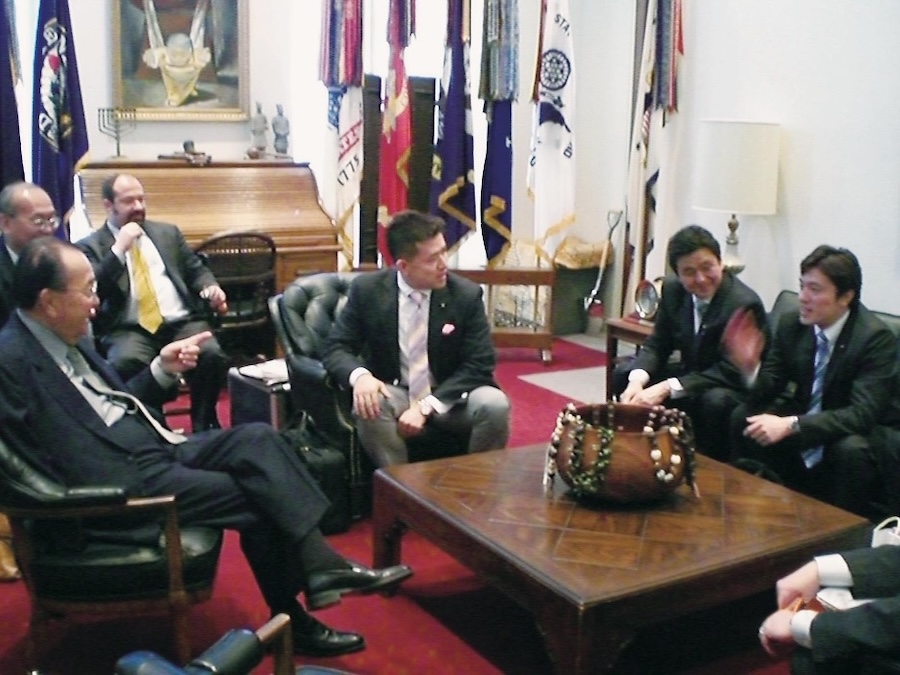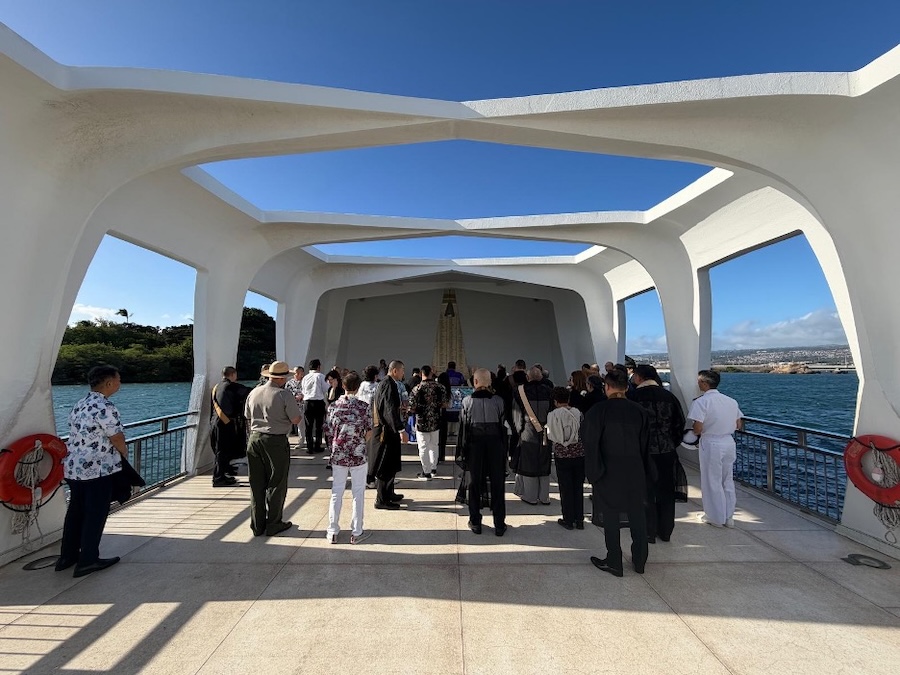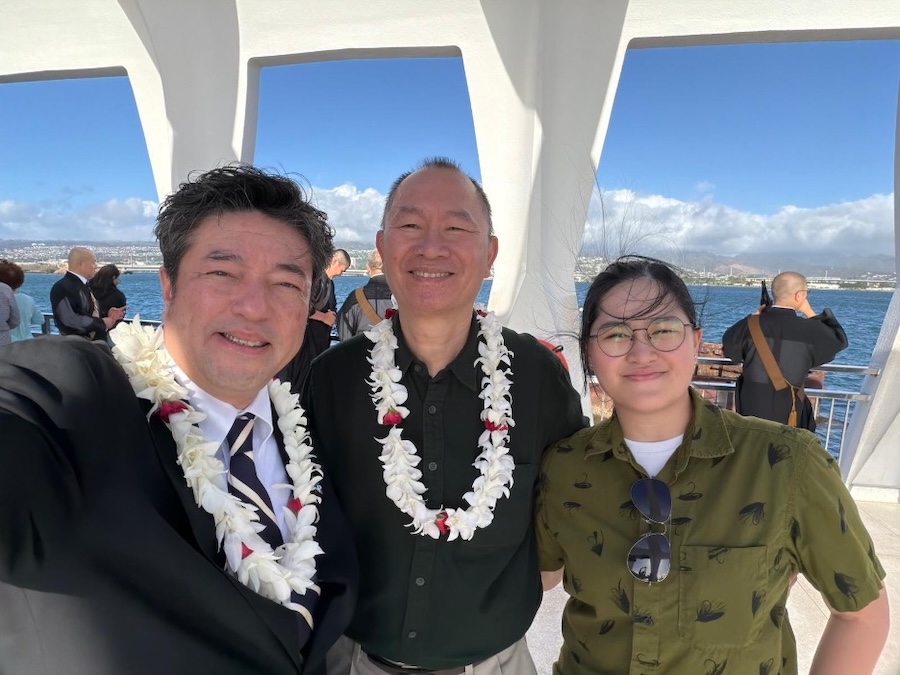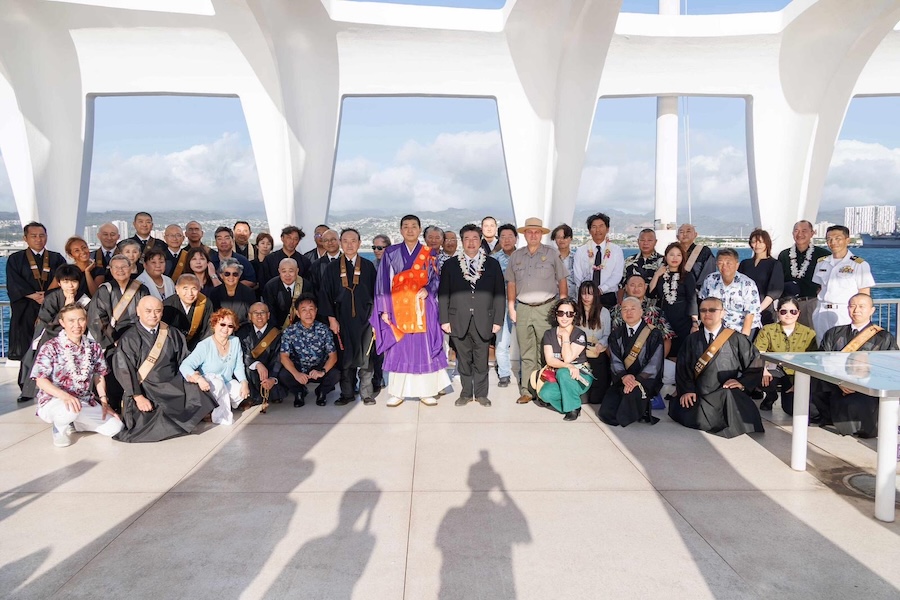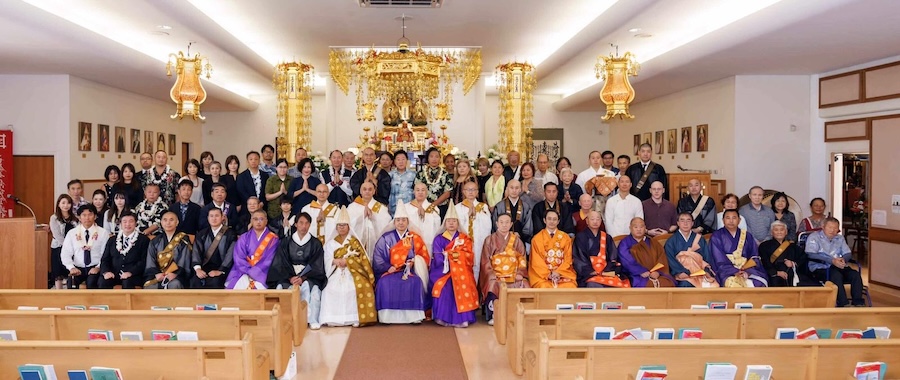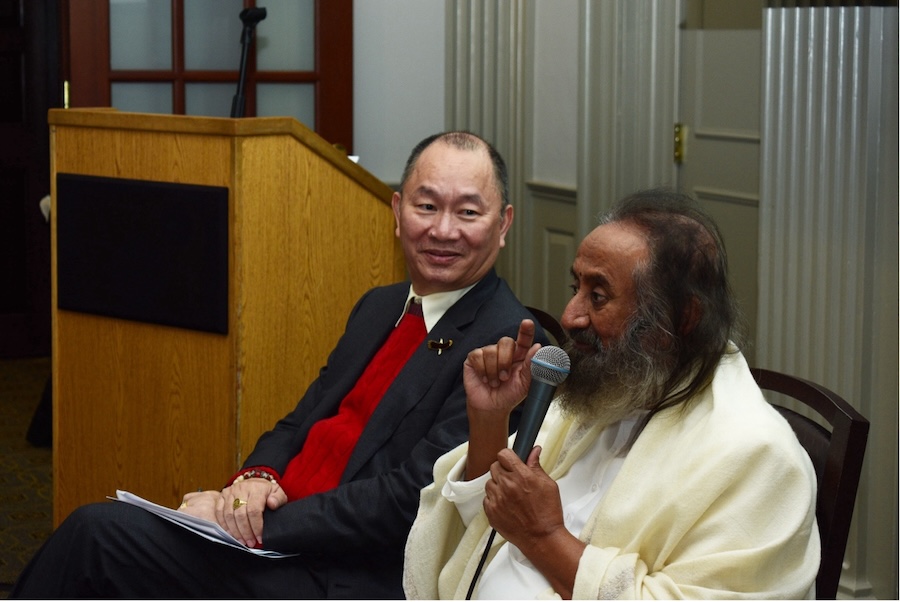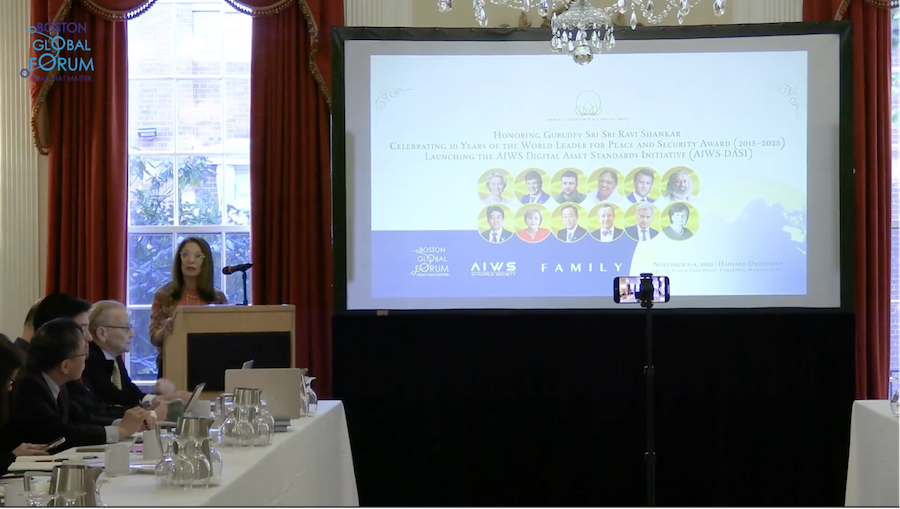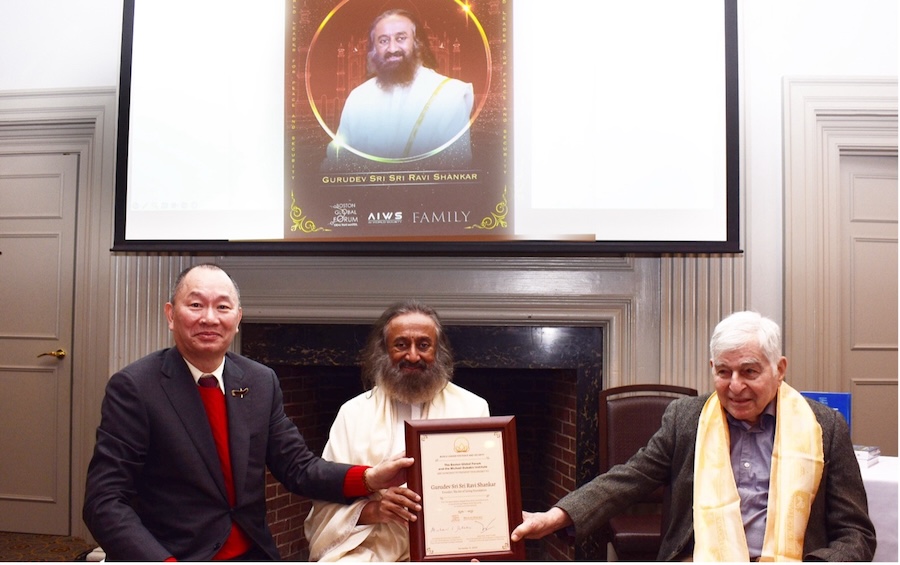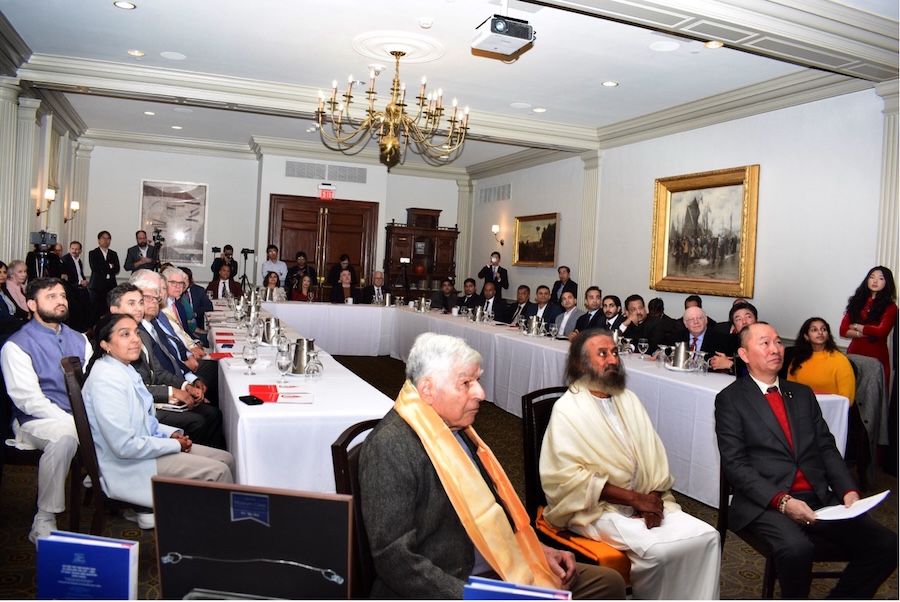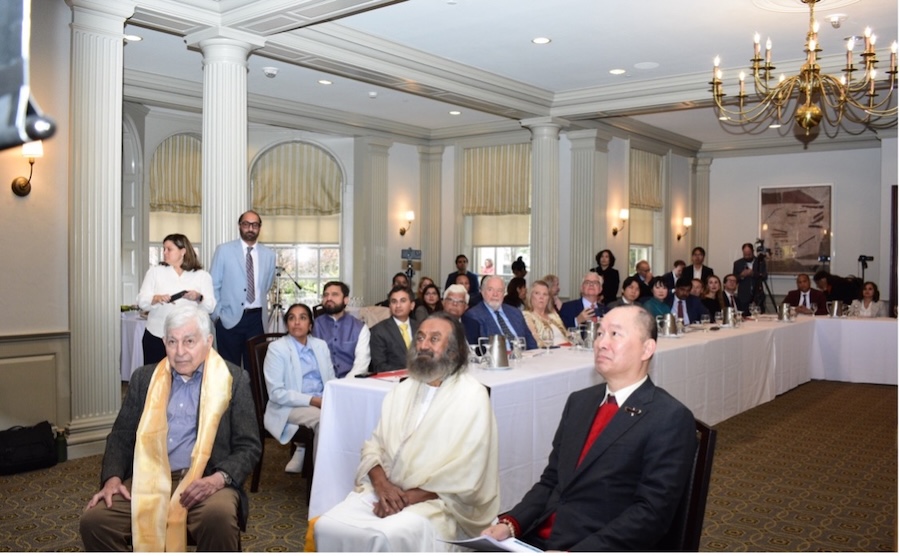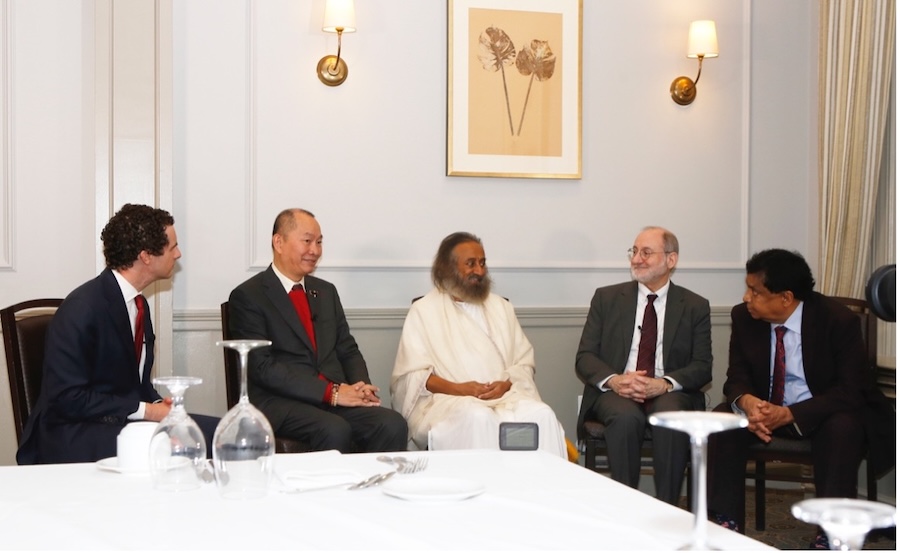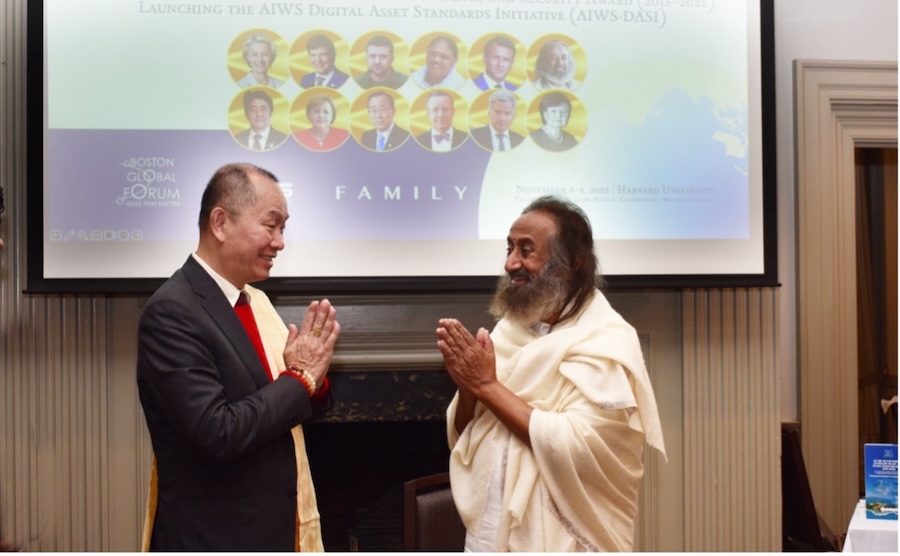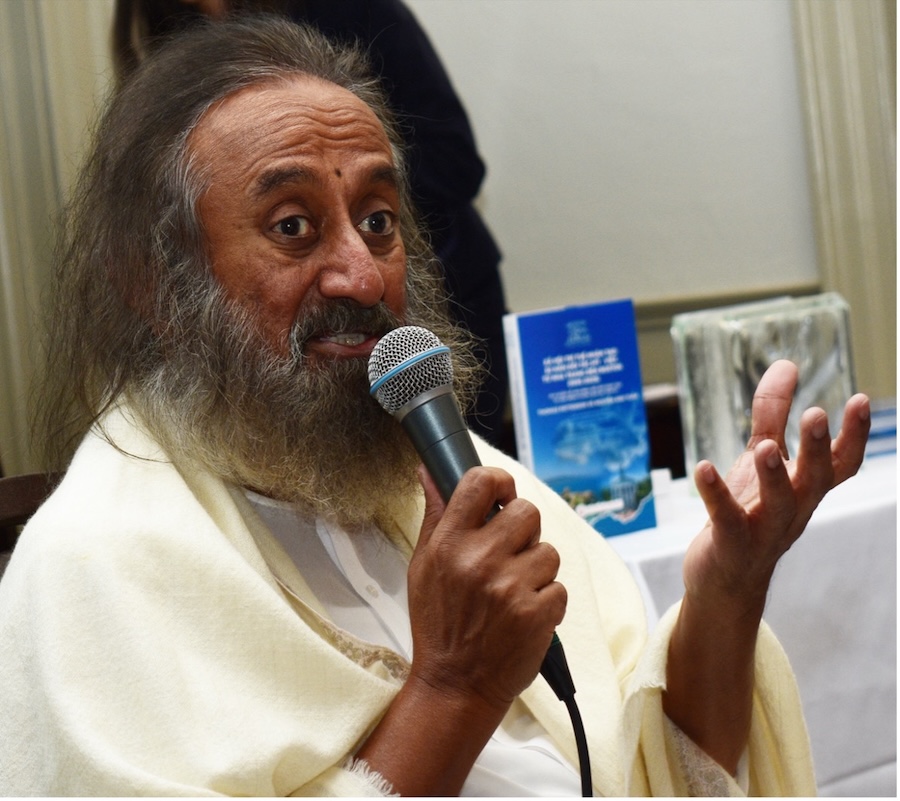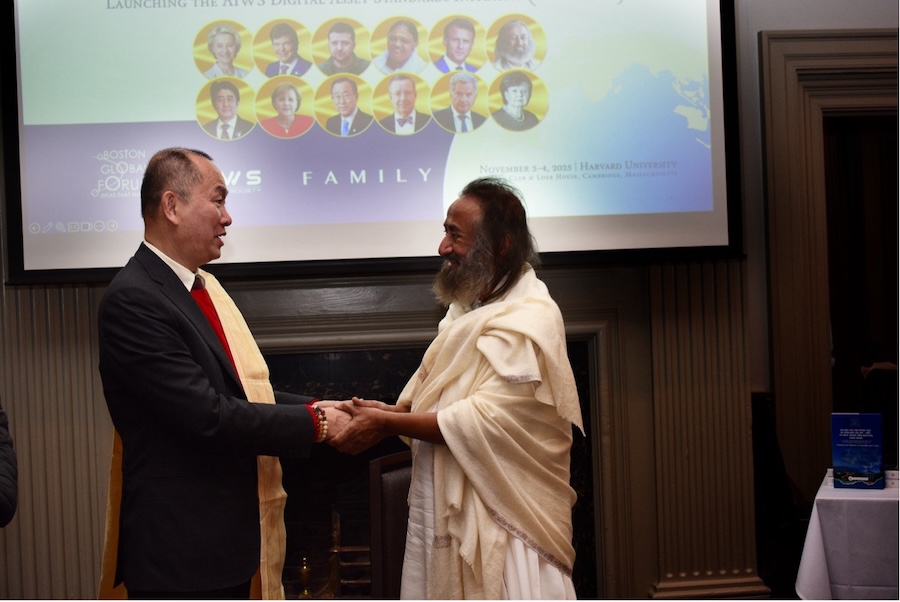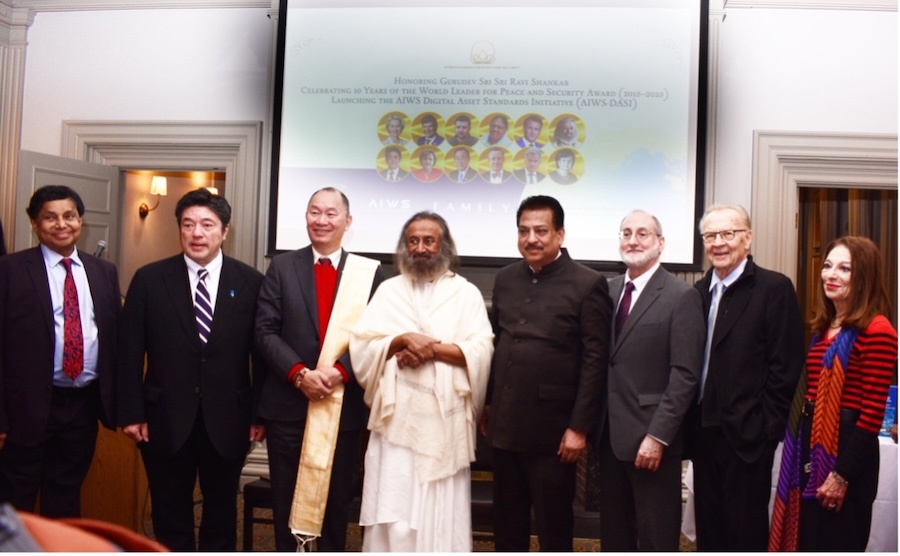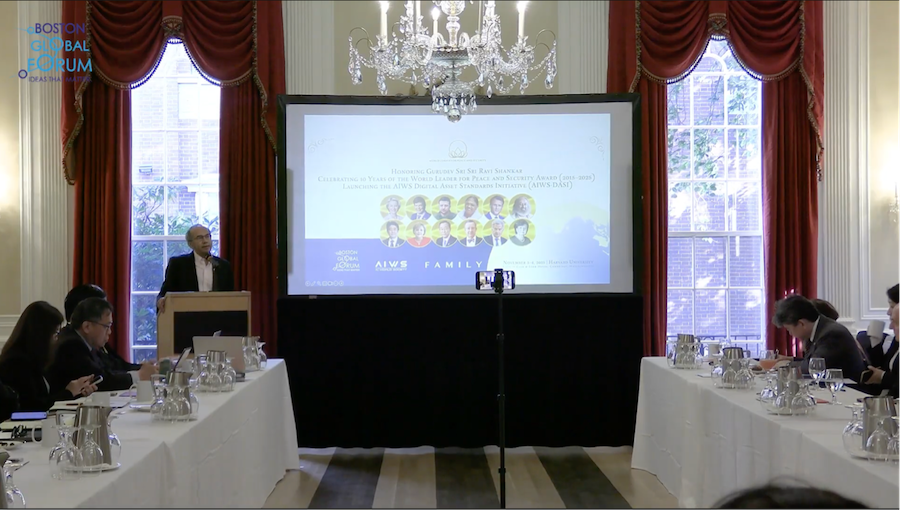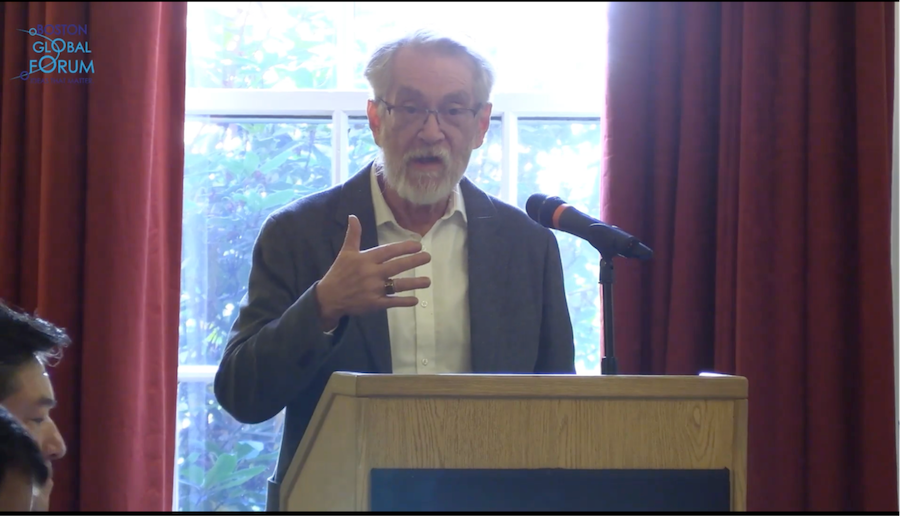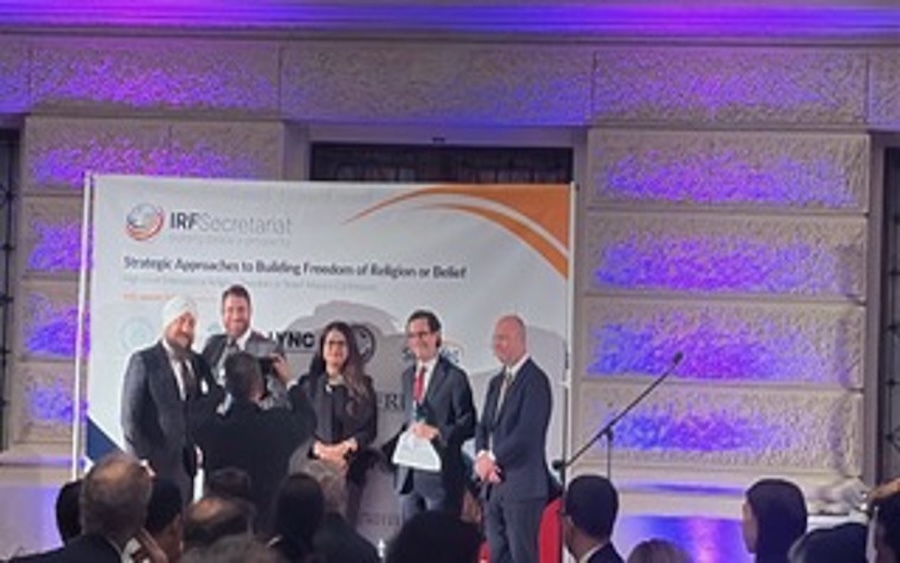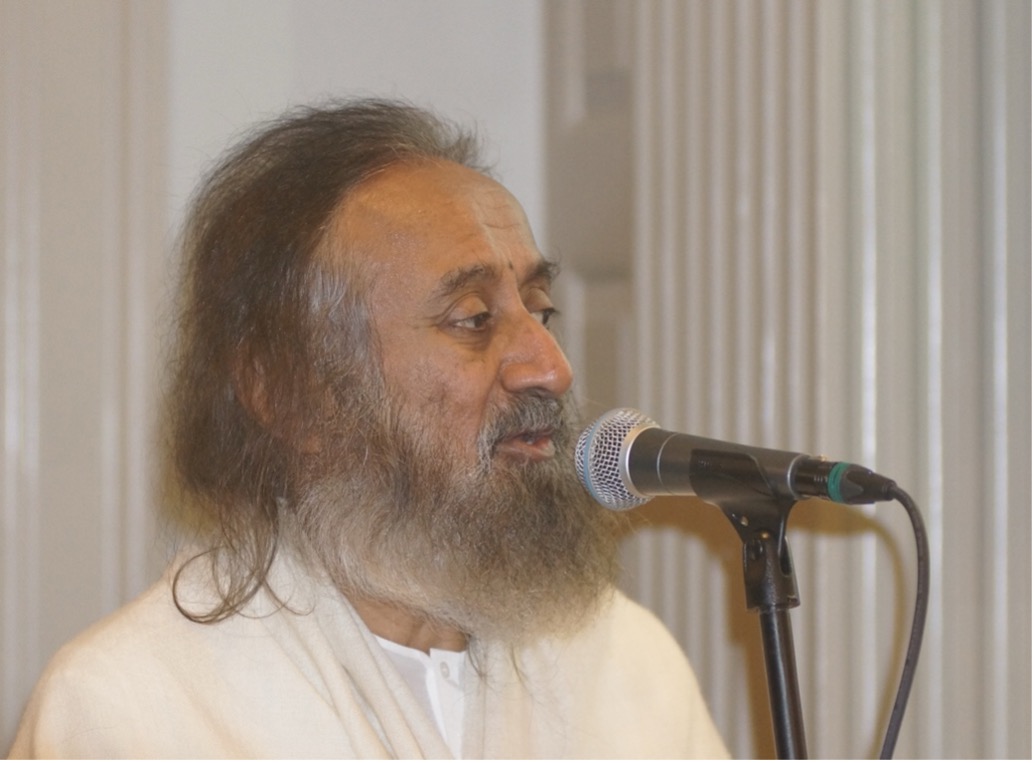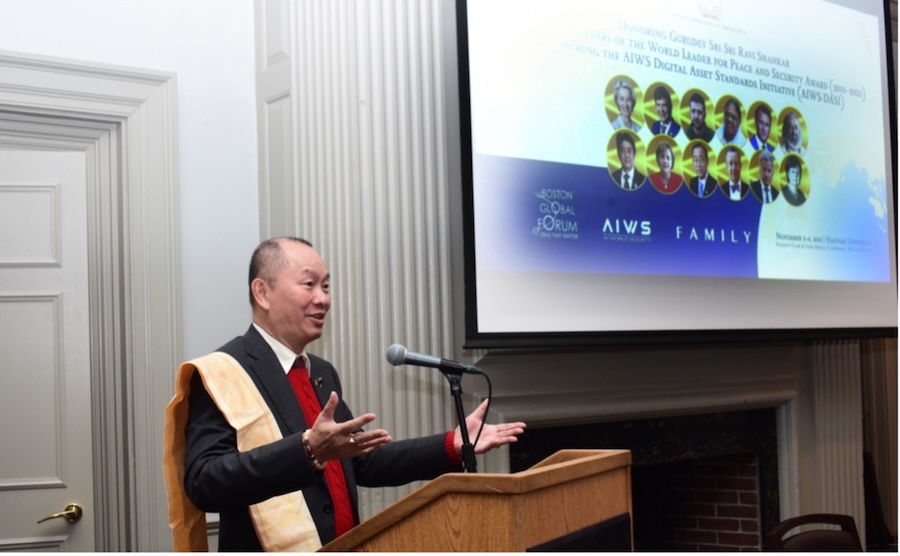
CTO Magazine Features Nguyen Anh Tuan on Ethical AI and Global Leadership
On November 12, 2025, CTO Magazine has published an in-depth AI in the Industry – In Conversation Q&A with Nguyen Anh Tuan, Co-Founder, Co-Chair, and CEO of the Boston Global Forum, and creator of the AI World Society (AIWS) and AIWS Digital Asset Standards Initiative (AIWS-DASI). In the interview, titled “Building a Responsible Digital Future: Nguyen Anh Tuan on AI Ethics, Innovation, and Global Leadership,” he shares his vision for a human-centered AI era — where technology serves as a sincere friend and assistant to people, not a force of disruption.
Tuan discusses the need for ethical governance of AI, the creation of AIWS-DASI as the world’s first ethical certification framework for digital assets, the role of democratic alliances, and how developing nations can meaningfully shape the future of AI. He also outlines how AIWS Government 24/7, AIWS Film Park, and AIWS Music for Humanity can help build a peaceful, creative, and values-driven AI civilization.
Read the full interview here:
https://ctomagazine.com/ai-ethics-innovation-global-leadership-with-nguyen-anh-tuan/

Building a Responsible Digital Future: Nguyen Anh Tuan on AI Ethics, Innovation, and Global Leadership
Gizel Gomes, November 12, 2025 |
Shaping the Framework for Responsible AI: This exclusive interview explains how ethical AI can redefine leadership, governance, and the global digital economy. It highlights the importance of building a human-centred AI world.
Artificial Intelligence has evolved from a promising experiment to a defining force – reshaping how we govern, innovate, and compete in the global economy. However, as its capabilities expand, so do the consequences of its misuse: misinformation, bias, data exploitation, and moral ambiguity.
The question for today’s leaders is no longer what AI can do, but how it should be guided. In a world driven by algorithms, the call for ethical frameworks, transparent digital systems, and leadership rooted in human values has never been more urgent.
At this critical intersection of innovation and responsibility, Nguyen Anh Tuan, Co-Founder, (Co-Chair, and CEO of the Boston Global Forum and creator of the AI World Society (AIWS) and the AIWS Digital Asset Standards Initiative (AIWS-DASI)), brings a transformative perspective.
In this exclusive interview, Nguyen Anh Tuan offers profound insights into how ethical governance can be embedded in digital transformation — from AI authenticity and digital asset certification to human-centered innovation and global collaboration.
Beyond strategy, Tuan’s ideas challenge today’s leaders to think beyond efficiency and disruption — to build technology that uplifts societies, preserves truth, and sustains human values in an increasingly algorithmic world.
For anyone shaping the future of AI-driven enterprises, his message is clear: the future of technology depends not on how powerful AI becomes, but on how wisely and compassionately we choose to guide it.
Leadership journey
You’ve worked with world leaders, governors, and professors at institutions like Harvard. What have these collaborations taught you about the kind of leadership the AI Age requires?
Tuan: Leadership in the AI Age demands more than authority or popularity — it requires vision, compassion, innovation, and deep moral clarity.
Through my collaborations with global leaders, distinguished governors, and renowned professors -especially at institutions like Harvard – I’ve recognized that the most impactful leaders in this new era are those who:
- Think ahead — true pioneers who can anticipate both the promises and the perils of AI.
- Act with compassion and responsibility — always grounding decisions in a deep concern for human dignity and well-being.
- Innovate with purpose — using technology not just for efficiency or power, but to serve humanity in optimal, ethical, and effective ways.
- Move swiftly and wisely — the AI Age moves rapidly, and leaders must respond with both agility and wisdom, striking a balance between speed and foresight.
Crucially, leadership in this age must rise above populism. It should not be driven by short-term applause, but by long-term responsibility.
Real leaders must think with people, for people, and by people — empowering communities rather than manipulating them.
Equally important is interfaith understanding and respect. The future must be inclusive, drawing from the spiritual and cultural values of diverse traditions. Ethical AI cannot flourish without a foundation in empathy, mutual respect, and a shared moral compass.
These lessons have deeply influenced my work in building the AI World Society (AIWS) and in shaping a new form of enlightened, human-centered leadership for our time.
The AIWS-DASI Initiative
What inspired you to create the AIWS Digital Asset Standards Initiative (AIWS-DASI)? Was there a defining moment that made you realize this framework was urgently needed?
Tuan: The inspiration for creating the AIWS Digital Asset Standards Initiative (AIWS-DASI) came from a clear and alarming realization: the digital asset ecosystem was becoming chaotic, unreliable, and vulnerable to abuse. By late December 2024, I observed a surge in unethical behavior — including lies, fraud, manipulation, and cybercrime — proliferating across digital asset platforms. People were losing trust. There were no shared values, no meaningful transparency, and no clear ethical framework guiding the use or governance of digital assets.
That was a defining moment for me.
I understood that if we want digital assets to truly empower people and support a new economy — not exploit them — then we must build a principled foundation. A framework rooted in ethics, accountability, transparency, and respect for human dignity. That’s why I founded AIWS-DASI, under the vision of the AI World Society (AIWS).
At its core, AIWS-DASI is more than just a technical standard. It is a moral and social contract for how digital assets should be created, valued, and used — with AI as a trusted enabler, not a manipulator. It recognizes that digital assets must contribute to a New Economy of Trust and that they should uplift society, reflect cultural and spiritual values, and align with the principles of a human-centered AI age.
By setting these standards, we are helping shape a future where digital transformation is both innovative and ethical, and where truth and integrity define our digital economy — not speculation and deception.
The AIWS-DASI introduces the world’s first ethical certification system for digital assets. How will this certification be implemented in practice, and who is eligible to apply for it? Could you explain its core purpose?
Tuan: The AIWS Digital Asset Standards Initiative (AIWS-DASI) introduces a pioneering ethical certification system designed to uphold integrity, transparency, and trust in the fast-growing digital asset space. At its core, the certification ensures that digital assets—whether they are tokens, digital art, cryptocurrencies, or AI-generated outputs—adhere to a clear set of ethical, technical, and legal standards.
In practice, the certification process will be governed by the AIWS-DASI Council and reviewed by the AIWS Asset Board, which includes global experts in AI, finance, cybersecurity, law, and ethics. Applicants, ranging from asset creators and startups to platforms and institutions, submit their digital assets for evaluation based on criteria such as transparency of origin, ethical use of AI, privacy protection, traceability, environmental impact, and societal value. Certified assets will be granted the AIWS Ethical Label, making them recognizable as trustworthy and socially responsible.
The primary purpose of this system is to combat fraud, deception, and unethical practices in digital spaces, especially as digital assets become increasingly integral to economies and societies. By setting a benchmark for ethical behavior, AIWS-DASI aims to build a more secure and human-centered digital economy, where innovation serves the public good.
How does AIWS differ from other global AI ethics initiatives, and what unique impact do you aim to achieve?
Tuan: AIWS (AI World Society) stands apart from other AI ethics initiatives in both vision and structure. While many global efforts focus solely on frameworks or principles, AIWS is building a comprehensive, actionable model for an AI-powered society grounded in ethics, human dignity, and global collaboration.
AIWS integrates governance, digital economy, education, culture, and spiritual values into one unified ecosystem. It is not only about AI safety or regulation — it’s about shaping a future where AI becomes a partner in advancing civilization.
We don’t just ask what AI should not do, but explore what AI can do for good — to support democracy, creativity, peace, and shared prosperity.
Our unique impact lies in creating living institutions like AIWS Government 24/7, AIWS Film Park, AIWS Music for Humanity, and AIWS Digital Assets — where ethical AI is practiced, celebrated, and made real in people’s lives. Through collaborations with leaders, universities like Harvard and MIT, and policymakers, AIWS seeks to pioneer a new era of enlightenment — one where AI strengthens our moral fabric rather than weakens it.
Governance, Technology, and Ethics
What safeguards are in place to ensure that the AIWS-DASI certification process itself remains transparent, accountable, and resistant to misuse?
Tuan: The AIWS Digital Asset Standards Initiative (AIWS-DASI) is designed with a multi-layered governance architecture to ensure integrity, transparency, and trustworthiness at every stage of the certification process. These safeguards include:
1. Independent Oversight by the AIWS Asset Board
An independent, globally representative AIWS Asset Board, composed of renowned leaders in ethics, law, finance, and technology, oversees the entire certification framework. This Board evaluates applications, monitors ongoing compliance, and has the authority to revoke certifications in cases of violation or fraud.
2. Transparent Evaluation Criteria
All certification criteria are publicly available, including the ethical, technical, and governance benchmarks digital assets must meet. Applicants undergo a rigorous review process based on these published standards to prevent bias or arbitrary decisions.
3. Audit Trail and Public Registry
AIWS-DASI maintains a tamper-proof, auditable registry of certified digital assets and certification decisions. Every certified project is listed on a public ledger, enabling community oversight and discouraging misuse or misrepresentation.
4. Whistleblower and Appeal Mechanisms
Any individual or entity can raise concerns or report violations through a formal whistleblower protection mechanism. Additionally, applicants can appeal decisions, which are reviewed by an independent panel to ensure fairness.
5. Periodic Review and Recertification
Certifications are time-bound and subject to periodic reassessment. Certified entities must report key updates and changes. This ensures continued alignment with evolving standards in ethics, security, and transparency.
6. AIWS Code of Ethical Conduct
All certified participants must pledge adherence to the AIWS Code of Ethical Conduct, committing to uphold human dignity, truthfulness, respect for privacy, and responsible innovation. Violations can lead to de-certification and public disclosure.
These safeguards ensure AIWS-DASI operates not just as a technical validator, but as a moral steward for digital assets — building public trust, protecting users, and advancing a more just and enlightened digital economy.
Experts have predicted that in the near future, nearly 90% of online content could be AI-generated.
In your view, what governance mechanisms can realistically ensure truth and authenticity in that future? How can we ensure that human creativity remains central, not overshadowed, in this new ecosystem?
Tuan: In a world where AI-generated content becomes the dominant form of information online, the key challenge is not the presence of AI, but how we govern its role in shaping narratives, values, and trust.
AI as a Tool, Not the Author
At the heart of my belief is a simple principle: AI must serve human creativity, not replace it. Every AI-generated piece of content should originate from a human idea, a human intention. AI is a powerful assistant—it can accelerate expression, scale reach, and enhance imagination.
But it should never override the core creative impulse that is uniquely human.
The Role of BGF and AIWS Governance
To ensure this balance, the Boston Global Forum (BGF) and AI World Society (AIWS) are developing governance frameworks and standards that will:
- Authenticate Source and Intent: Every AI-generated content should be traceable to a human originator, with metadata that identifies whether it was human-created, AI-assisted, or AI-authored.
- Introduce an AI Content Ethics Standard: Under the AIWS-DASI initiative, we can certify content platforms and creators who adhere to ethical standards—ensuring that truth, respect, and transparency are embedded in every layer of digital content.
- Highlight Human-Centered Creativity: BGF fosters digital ecosystems that celebrate and prioritize human authorship. Through AIWS Cultural Projects, such as AIWS Film Park and AIWS Music for Humanity, we demonstrate how AI can amplify human stories without erasing their soul.
A Human-AI Partnership for Truth
In this ecosystem, AI does not lead—it supports. Governance mechanisms will ensure that AI:
- Works transparently, with auditable logs of how content is produced.
- Respects intellectual and emotional authorship.
- Actively avoids spreading falsehoods by embedding truth-verification protocols.
- Empowers creators from diverse cultures and spiritual backgrounds to infuse their values into the digital world.
Preserving Human Spirit in the AI Age
Ultimately, our mission is to build a digital society where AI expands the canvas of human expression, not narrows it.
By embedding ethical standards, verifying content provenance, and upholding the dignity of human creativity, we can ensure that the AI-dominated future still belongs to people—keeping their stories, dreams, and truths at its center.
How can developing nations meaningfully participate in the global conversation about AI ethics and digital governance?
Tuan: Developing nations have a crucial role to play in shaping the ethical future of AI and digital governance.
Far from being passive recipients of technologies created elsewhere, they can—and must—be active co-creators of global standards and values in the AI Age. Their unique perspectives, challenges, and cultural richness bring indispensable insights to the table.
A few reasons why participation matters for developing nations:
- Inclusive Standards Protect Their Interests
If developing nations don’t help shape AI governance, global standards may be written without their realities in mind—potentially widening inequality, deepening digital divides, or exposing them to exploitative systems. Participation ensures their sovereignty, culture, and economic future are respected. - AI as a Tool for Leapfrogging
With the right ethical frameworks, AI can help developing nations leapfrog traditional barriers in healthcare, education, finance, and governance. Participation enables them to set safeguards and benefits that serve their people. - Cultural and Spiritual Contributions to Ethics
Many developing nations possess deep spiritual and cultural traditions that are essential to a balanced, human-centric vision of AI. Their philosophies of harmony, compassion, and community can enrich global frameworks and ground technology in timeless human values.
Tips on how to participate meaningfully:
- Join Global Alliances and Initiatives
Organizations like the Boston Global Forum (BGF) and initiatives such as AIWS-DASI welcome collaboration with developing nations. These partnerships offer access to cutting-edge research, policy frameworks, and ethical standards that can be adapted and implemented locally. - Contribute Voices and Case Studies
Sharing local AI innovations, social challenges, and ethical dilemmas provides real-world grounding for global frameworks. Developing nations can lead working groups, present in global forums, and participate in multi-stakeholder dialogues—not just as guests, but as equal partners. - Build Local Capacity with Global Support
Through AIWS and other networks, developing countries can train their next generation of AI ethicists, policy leaders, and engineers, using curricula aligned with universal values of human dignity and justice. - Establish Ethical Testbeds
Developing nations can pioneer ethical pilot projects—such as AI in rural healthcare or digital identity—while embedding AIWS-DASI certification. This positions them not as followers, but as innovators and model-builders for the global community.
The mere benefits of engagement:
- Global Respect and Influence
Shape the rules, rather than just following them. Early participation enhances a nation’s voice in forums such as the UN, G20, and international regulatory bodies. - Access to Resources and Knowledge
Partnering in global ethical initiatives opens doors to funding, technical support, and world-class networks. - Cultural Empowerment
Developing nations can infuse global digital governance with their philosophies, religions, and traditions, ensuring that AI is not value-neutral, but value-rich. - Economic Development with Integrity
Ethical AI frameworks attract responsible investment and foster trustworthy ecosystems for innovation.
To conclude, participation in global AI ethics and governance is not just a right—it is a necessity.
By stepping forward now, developing nations can shape the future of AI, ensure it serves the interests of all humanity, and build a future that reflects their values, voices, and visions.
Human-Centered Innovation
What does ‘human-centered’ innovation mean to you in practical terms – and how can companies and governments adopt this mindset?
Tuan: To me, ‘human-centered’ innovation means that all technological development must begin and end with the well-being, dignity, and empowerment of people.
It is not merely about user experience or consumer satisfaction — it is about aligning innovation with human values, ensuring that technology serves as a force for compassion, equity, and upliftment.
What does it mean in Practice?
- Start with Human Needs, Not Technological Capabilities
Ask first: What problems are we solving for humanity? What opportunities can we create for people to thrive? Technology should be a tool to amplify human potential, not an end in itself. - Respect Human Agency
In human-centered innovation, people are not data points or passive users — they are decision-makers, co-creators, and partners. This means providing users with transparency, control, and choices over how technologies impact their lives. - Integrate Ethics from Day One
Human-centered means designing with ethics, fairness, and justice from the very beginning — not as an afterthought. Every innovation should be tested against its social and moral consequences, especially for the most vulnerable. - Prioritize Inclusion
Solutions must be inclusive of diverse cultures, voices, languages, and needs, especially from marginalized communities and developing nations. The AI revolution should leave no one behind.
Tips on how companies can adopt this mindset
- Create Human Values Teams within R&D and product design to assess the impact of innovations on people’s lives and freedoms.
- Implement AIWS-DASI Certification to ensure that products meet ethical standards for transparency, trust, and human dignity.
- Co-design with Users, particularly those most affected, including communities often overlooked by traditional market research.
- Redefine KPIs beyond profit — measure outcomes like trust, well-being, accessibility, and social value.
Tips on how governments can adopt this mindset
- Embed Ethics in Policy and Regulation by setting national standards aligned with frameworks like the AI World Society (AIWS) and promoting initiatives like the Boston Charter for AI Ethics.
- Invest in Human-Centered Education, fostering cross-disciplinary learning that combines AI, humanities, ethics, and public service.
- Fund Civic Tech and Social Innovation, using AI to address public needs like healthcare access, climate resilience, and education equity.
- Protect Human Rights in the Digital Sphere, ensuring that data, identity, and digital freedom are safeguarded by law and design.
In summary, human-centered innovation is about restoring the soul of technology. It calls us to develop AI and digital tools not just for efficiency or growth, but for kindness, truth, meaning, and shared progress. With the right mindset and mechanisms, we can ensure that innovation uplifts humanity — not replaces it.
Future Outlook
How do you envision the AI World Society evolving over the next decade?
Tuan: Over the next ten years, I envision the AI World Society (AIWS) maturing into a global civic and technological ecosystem—one that empowers governments, businesses, universities, and individuals to collaborate ethically in the AI Era and build a peaceful, inclusive, and innovative civilization.
1. A Model for AI-Integrated Governance (AIWS Government 24/7)
AIWS will help governments transition from traditional bureaucratic systems to intelligent, continuous governance models that are more transparent, responsive, and effective. This includes frameworks like AIWS Government 24/7, where trusted AI agents assist public leaders and institutions while preserving democratic values, ethics, and citizen agency.
2. Ethical Digital Economy and Financial Systems
AIWS will support the creation of a new digital economy rooted in trust and fairness. Through initiatives like the AIWS Digital Asset Standards Initiative (AIWS-DASI), it will guide ethical certification of digital assets, protect against cybercrime, and empower people in both developed and developing nations to participate meaningfully in the AI economy.
3. Culture, Spirit, and Humanity at the Core
AIWS will champion the fusion of culture, technology, and spirituality. Platforms like the AIWS Film Park and AIWS Music for Humanity will foster global artistic collaboration, celebrating human creativity in partnership with AI. These initiatives will preserve and amplify spiritual values, sacred sites, and heritage across borders — from Vietnam to India to the United States.
4. A Global Alliance of Democratic Forces
AIWS will continue to build alliances between democratic nations — the US, EU, Japan, India, Southeast Asia, and beyond — to promote responsible AI development, counter authoritarian digital models, and uphold the Four Pillars: Democracy, Ethics, Innovation, and Humanity.
5. Education for Enlightened Citizens in the AI Era
AIWS will expand access to AIWS University initiatives, helping students and future leaders develop the ethical, cultural, and civic competencies needed to shape the AI future. Knowledge platforms, digital libraries, and cross-national research hubs will make AI learning universal, practical, and values-based.
In essence, by 2035, AIWS will not just be a vision — it will be a living, breathing society of values. It will be a trusted framework to ensure AI remains a friend to humanity, not a force of disruption. A society where innovation is led by compassion, where digital progress is grounded in ethics, and where the soul of civilization is never lost to the speed of machines.
As someone shaping global dialogue on ethical AI, what helps you maintain optimism and purpose in such a fast-evolving and often complex AI landscape?
Tuan: What keeps me optimistic is the belief that human dignity, compassion, and creativity will always rise above complexity. Because I believe that technology, when guided by ethics and wisdom, can be a profoundly positive force for good.
Even in moments of uncertainty, I find strength and clarity in a few key things:
1. The Power of Global Collaboration
Working closely with governors, spiritual leaders, professors, and young innovators from Harvard to Hanoi, from Paris to Tokyo, I see a shared aspiration to build a better future. These collaborations remind me that no matter how advanced AI becomes, the human desire for peace, fairness, and meaning remains at the center.
2. Moral Anchors Like AIWS and the Boston Global Forum
AIWS gives me a moral compass: it’s not just about machines, but about society, values, and shared destiny. Our initiatives — like AIWS Government 24/7, AIWS Digital Asset Standards, and AIWS Music for Humanity — prove that it’s possible to embed ethics and beauty into digital innovation. That gives me hope.
3. The Stories of Resilience and Vision
When I see leaders like Shinzo Abe, Emmanuel Macron, Gurudev Sri Sri Ravi Shankar, I know that ethical leadership is not just an idea. It’s real, and it’s powerful. Honouring their legacy reminds me why this work matters.
4. The Energy of the Youth and Future Generations
Young minds from Vietnam, the U.S., Japan, and many other nations inspire me daily. That is because they embrace AI not just as a tool but as a responsibility. They are curious, ethical, and brave — and they will shape a more enlightened digital civilization. I’m building for them.
Ultimately, I remain optimistic because I view AI not as a threat, but as a mirror. It reflects who we are.
If we act with ethics, courage, and compassion, AI will follow. And together, we can build a civilization that honors both intelligence and humanity.
What advice would you like to give to today’s emerging AI leaders? Any core values to guide them as they innovate?
Tuan: My advice to emerging AI leaders is simple yet profound: lead with humanity first. Technology may define the tools of our age; however, the values define the destiny of civilization.
1. Compassion and Responsibility
Always remember that every algorithm, every model, every system you build affects real human lives. Lead with compassion — design technology to serve people, not control them. Responsibility must guide every innovation, ensuring that progress never comes at the cost of human dignity or freedom.
2. Truth and Transparency
In an era where information can be distorted by speed and automation, truth becomes sacred. AI leaders must commit to transparency, honesty, and integrity, both in how AI is developed and how it is used. Trust is the foundation of any sustainable innovation.
3. Creativity and Courage
Don’t just replicate what exists — imagine what could be. True AI leadership requires creative thinking and courage to pioneer. The greatest breakthroughs will come from those who blend vision with ethical imagination.
4. Collaboration and Humility
No one can build the future alone. Work with others — scientists, philosophers, artists, and spiritual leaders. Humility enables you to listen, learn, and grow. The best AI leaders are not those who dominate technology, but those who harmonize human wisdom with machine intelligence.
5. Respect for Cultural and Spiritual Diversity
AI should reflect the beauty of human diversity. Leaders must ensure that AI respects diverse cultures, beliefs, and values, thereby strengthening global unity rather than division. Interfaith understanding and moral depth are vital for sustainable innovation.
In essence, emerging AI leaders must see themselves not just as innovators, but as guardians of the future — building an AI world that is ethical, compassionate, and deeply human. Because the true measure of leadership in the AI Age is not how powerful technology becomes, but how wisely and kindly it serves humanity.
You’ve had a remarkable journey — from founding VietNamNet to now leading the Boston Global Forum. How did that path shape your vision for technology and ethical governance?
Tuan: My journey has always been guided by a deep commitment to using technology as a force for good.
Looking back, when I founded and served as an Editor-in-Chief of VietNamNet, I envisioned media as a platform to uplift society, foster reconciliation, and cultivate compassion. One of my earliest initiatives was the concept of World Reconciliation Day, which promotes mutual respect, tolerance, and love among people.
As I witnessed the rapid rise of artificial intelligence, I saw both great promise and profound risk. I immediately recognized the urgent need for ethical governance in AI — to ensure that AI serves humanity, not the other way around.
Over time, I envisioned a future where AI would not replace humans, but instead become a sincere friend and assistant, augmenting our capabilities and uplifting our dignity.
This vision culminated in the founding of the AI World Society (AIWS) in 2017, a comprehensive framework for building a new society in the AI era — one that integrates ethics, human values, and technological innovation.
Today, through the Boston Global Forum, we continue this mission, working with global leaders and thinkers to shape a just, peaceful, and enlightened future driven by AI.
Key takeaway:
As the world accelerates toward an AI-defined future, Nguyen Anh Tuan’s vision stands as both a blueprint and a moral compass for leaders navigating uncharted digital terrain. He reminds us that innovation without ethics risks eroding the very humanity it seeks to empower.
The message is clear: technology must evolve hand in hand with conscience. It means that technology alone won’t determine the future – people will. Even if we create the fastest and most innovative AI systems, what truly defines progress is how we utilise them, guided by our ethics, compassion, and shared sense of responsibility.
It’s a reminder that human values—not technical power—are the real drivers of a meaningful digital future.
About the Speaker: Nguyen Anh Tuan is the visionary Co-Founder and CEO of the Boston Global Forum and the creator of the AI World Society (AIWS) initiative. Formerly the Founder and Editor-in-Chief of VietNamNet, Tuan is a pioneer in digital media and governance. His work unites global leaders, thinkers, and innovators to define a “Social Contract for the AI Age.” He leads the design of AIWS programs including the AIWS Digital Asset Standards Initiative (AIWS-DASI), establishing ethical and human-centered frameworks for the future digital economy.
